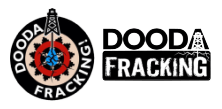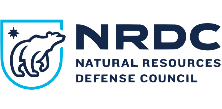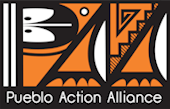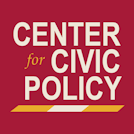
GREATER CHACO COALITION PRIMER
The Greater Chaco region is a living and ancient cultural landscape. A thousand years ago, Chaco Canyon in northern New Mexico was the ceremonial and economic center of the Chaco Cultural Landscape, an area encompassing more than 75,000 square miles of the Southwest in NM, AZ, CO and UT and sacred to Indigenous Peoples. Today, Chaco Canyon is a National Park and UNESCO World Heritage Site, considered one of the most important archaeological sites in the Americas, yet the vast majority of the Greater Chaco Landscape is leased to oil and gas activities. Indigenous People, primarily Pueblo and Navajo (Diné) peoples, sacred cultural sites, precious water resources, and the area’s biodiversity are all under a grave and growing threat from fracking.
For over a century, the federal government has quite literally treated the Greater Chaco Landscape like a national energy sacrifice zone. Victim to large-scale resource exploitation, including a history of Navajo displacement and land theft, the Greater Chaco region has been carved into a complex checkerboard of federal, state, private, and Navajo allotment land. A maze of federal and state agencies control the area, allowing for oil, gas, and mining companies to exploit communities, as well as layers of law, regulations, and oversight agencies. New Mexico is now the second biggest oil producer in the United States, hosting the world’s largest oilfield in southeast New Mexico and west Texas, with more than 91% of available lands in the Greater Chaco area leased for fracking.
Fracking disproportionately harms Indigenous communities due to their unique relationship to the land and water, and their exposure to the harmful effects of colonization and racism. Diné families experience fractures in their community including increased truck traffic, road degradation, infrastructure decline and failures, increased noise and light pollution, health impacts, decreased air and water quality, degrading water quality, unsafe conditions for livestock, destruction of sacred sites, and other associated impacts. Fracking spills, leaks, and explosions happen daily. Still without proper protections, the region is now host to a variety of boondoggle scams to propel the oil and gas industry, including false-promises of “clean” hydrogen and efforts to turn toxic radioactive fracking waste into drinking water.
For decades, the Department of the Interior’s Bureau of Land Management has skirted updates to its Farmington, Rio Puerco, and adjacent field offices’ resource management plans that would finally address the cumulative impacts of industrialized fracking on the Greater Chaco Landscape. Despite dozens of public meetings, two million protest comments, and countless resolutions calling for restraint, federal and state agencies continue to rubberstamp more fracking with no safeguards in place to protect the region’s cultural landscape and without adequate consultation with the public, Tribes, Navajo Chapters, and impacted communities. In response to continued calls for action, Secretary Deb Haaland announced the “Honoring Chaco Initiative'' in 2021 - a new collaborative process that promises to finally deliver meaningful cultural landscape protection in Greater Chaco. However, despite the ongoing “Honoring Chaco '' process, the Bureau of Land Management continues to approve hundreds of new oil and gas wells and related activities, including the re-issuance of 45,000 acres of oil and gas leases in August 2022.
One thing is certain: Greater Chaco cannot be honored while it continues to be sacrificed.
GREATER CHACO COALITION PLATFORM
In approving wide-scale fracking on public and Tribal lands, the Department of Interior has failed to consider:- The health, wealth, and wellness of impacted communities, especially that of local Navajo communities, Chapter Houses, and Allotment Land Owners.
- The Greater Chaco Landscape expands far beyond Chaco Culture National Historical Park and immediate vicinity and holds spiritual and cultural significance to all Indigenous peoples who are rooted in Chaco culture, not limited to the Navajo Nation.
- The long-term and cumulative impacts of fracking on health, land, water, air, and climate.
The Greater Chaco Coalition (Frack Off Chaco) is a collaborative effort between Indigenous community leaders, Native groups, nonprofits, and public lands and water protectors to advance the following platform:
1) Restore the balance. No more fracking; clean up the mess
The federal fossil fuel program is fundamentally broken. Relief is needed, no more leasing or drilling across the Greater Chaco Landscape. Land management decisions must center on protection of integrity of the cultural landscape. The Greater Chaco Landscape has been an energy sacrifice zone for far too long, and the legacy of pollution, including abandoned, orphaned, and non-producing wells must be addressed and fully remediated.
2) Meaningful Tribal consultation and consent at every stage of decision-makingThe “check the box” culture of consultation must end, and co-management must begin. Any review, policy, or planning efforts must respect timelines of Tribal-led ethnographic studies and center meaningful Tribal consultation, including free, prior, and informed consent, extended to traditional Navajo Chapters, the Navajo Nation, the All Pueblo Council of Governors, and all Tribes who trace lineage to these sacred lands or to Chaco culture.
3) Protect the health, wealth, and wellness of communities; just transitions
Community protections must be put in place to assure quality of life. Just transition efforts and community infrastructure investments must be funded by federal and state agencies to reconcile impacts of sacrifice zones and environmental racism. Fair share distribution and reparations for Tribal and Navajo allotment landowners must be fairly revisited.
4) Assure environmental justice, address cumulative impactsGreater Chaco protection cannot be defined by lines on a map, it is defined through the holistic view of the land, air, water, and the sacred. Before issuing fracking permits and leases, agencies must assure suitable protections for the region by first comprehensively analyzing the cumulative impacts of existing and potential oil and gas activities on public health, local quality of life, cultural resources, water resources, air quality, environmental and social justice issues, and climate change.
COALITION ORGANIZATIONS
These are just a few of the groups in the Frack Off Greater Chaco Coalition. There are also numerous individuals, members of the indigenous community, and people on the frontlines who are active in the coalition.
Diné CARE, Citizens Against Ruining our Environment, is an all-Navajo environmental organization, based within the Navajo homeland. We strive to educate and advocate for our traditional teachings as we protect and provide a voice for all life in the Four Sacred Mountains. We promote alternative uses of natural resources that are consistent with the Diné philosophy of Beauty Way. Our main goal is to empower local and traditional people to organize, speak out and determine their own destinies.Diné CARE - an indigenous environmental organization to protect and preserve the diné way of life.
We seek to empower, provide a voice for, and protect the interests of community-based and traditional people. We started as a small, community based organization in 1988 to prevent the location of a toxic waste incinerator and dump in the Navajo community of Dilkon, Arizona.Dooda Fracking has shared research from other impacted communities. We have learned that other tribal nations around us are deeply impacted by the Oil and Gas Industry. We are providing information to our people and grassroots leaders to better teach the communities in different areas that are currently being impacted and also communities that have potential threats in the future.
We have participated in the Protection of Chaco Canyon laying down offerings, prayers, speeches around the nation and have provided detailed information on the Sacredness and connection to our Dine Creation Story. Dinetah is the heart of our nation and needs recognition for the efforts the community is putting into place to protect the community.
We want unification to take place on Dine Bikeyah so we can move forward as a people.Food & Water Watch champions healthy food and clean water for all. We stand up to corporations that put profits before people, and advocate for a democracy that improves people’s lives and protects our environment.
We are working to create a healthy future for our families and for generations to come—a world where all people have the resources they need, including wholesome food, clean water and sustainable energy. Making this happen requires organizing people from all over the country to build a large movement with the political power to make our democratic process work. Large numbers of people are a countervailing force to corporations “buying” public policy.
Frack Free Four Corners Is dedicated to the following points of concern from fracking: health and cultural effects on area residents including indigenous peoples, methane emissions, destruction of our ancient and cultural sites, water contamination, earthquakes & the ruination of farming and their communities.
As Four Corners states, we hope to bring activists together and assist each other in combating fracking in our shared regions. It is our mission to amplify the voices and work of all our fellow activists and their organizations and to provide our fellow citizens with the credible information and tools to maximize their participation and assistance in achieving our mutual goals.
Frack Free New Mexico is dedicated to protecting the people, culture, air, water, and special places of the Land of Enchantment from fracking. We want the EPA to move quickly to regulate toxic, climate-changing methane pollution from existing fracking operations. Sacred areas like Chaco Canyon and the frontline communities that surround them need to be protected from the dangerous impacts of oil & gas drilling.
We demand that the BLM help lead a just transition to an economy beyond fossil fuels, keeping sacred what's sacred and leaving fossil fuels in the ground. We want more jobs in New Mexico - but not ones at the expense of land or lives.
Great Old Broads for Wilderness is a national grassroots organization led by elders that engages and inspires activism to preserve and protect wilderness and wild lands. Conceived by older women who love wilderness, Broads gives voice to the millions of older Americans who want to protect their public lands as Wilderness for this and future generations.
As lifelong nurturers and caregivers, our approach is one of perseverance and determination, rather than militancy and contentiousness. Broads have a heartfelt and seasoned outlook on the benefits of protecting our wild, public lands.
New Energy Economy (NEE) was founded in 2003 to build a carbon-free energy future for our health and the environment. New Energy Economy employs public education, community organizing, targeted litigation methods, and model solar energy projects to shift our energy economy from fossil fuel and nuclear extraction to clean alternatives in pursuit of environmental justice and human and environmental health.
New Energy Economy is led by experts in public policy litigation and advocacy, community organizing, and sustainable economic and community development. NEE received the 2012 Sustainable Santa Fe Award in Renewable Energy for its Sol Not Coal Project.
We believe the world’s children should inherit a planet that will sustain them as it has sustained us. NRDC works to ensure the rights of all people to the air, the water and the wild, and to prevent special interests from undermining public interests.
NRDC experts use data and science to unearth the root causes of the problems that confront us. We use that information to blueprint transformative solutions, and we mobilize the support of partners, members, and activists to advocate for laws and policies that will protect our environment far into the future.
San Juan Citizens Alliance advocates for clean air, pure water, and healthy lands - the foundations of resilient communities, ecosystems and economies in the San Juan Basin.
Founded in 1986, we are the Four Corners’ homegrown, locally focused environmental advocacy organization. We are drawn to the big, intractable, controversial topics others prefer to ignore, issues like climate change, energy development, air quality, water quality, and the protection of wild lands and rivers.
The Rio Grande Chapter of the Sierra Club is a volunteer-led organization representing more than 7,000 members in New Mexico and West Texas. Our mission to is to explore, enjoy and protect the planet, and we prioritize action on protecting our climate, clean air, clean water, and conservation of wildlife and public lands in New Mexico and West Texas.
We are dedicated to creating smart energy solutions to combat climate changes, safe and healthy communities, and an enduring legacy for America's wild places.
Tewa Women United (TWU) started in 1989 as a support group for women from the Pueblos of the northern Rio Grande concerned with the traumatic effects of colonization, religious inquisition, and militarization leading to issues such as alcoholism, suicide, domestic/sexual violence and environmental violence. In the safe space we created, we transformed and empowered one another through critical analysis and by embracing and reaffirming our cultural identity.
TWU believes in strengthening and re-strengthening beloved families and communities to end violence against women, girls, and Mother Earth. The mission of TWU is to provide safe spaces of Indigenous women to uncover the power, strength, and skills they possess to become positive forces for transformative change in their families and communities.
The Western Environmental Law Center uses the power of the law to safeguard the public lands, wildlife, and communities of the American West in the face of a changing climate. We envision a thriving, resilient West, abundant with protected public lands and wildlife, powered by clean energy, and defended by communities rooted in an ethic of conservation.
WELC works close to the ground, with offices in Oregon, Washington, Montana, and New Mexico. As a public interest law firm, WELC does not charge clients and partners for services, but relies instead on charitable gifts from individuals, families, and foundations to accomplish our mission. WELC integrates national policies and regional perspective with the local knowledge of our 185+ partner groups to implement smart and appropriate place-based solutions.
We believe in nature’s right to exist and thrive. We act on this belief with compassion and courage by preserving the wild world. We defend wildness, empower life, end injustice, and stand for healthy, sustainable ecosystems and human communities. We embrace conflict and cooperate without compromising our values. We execute the campaigns strategically and decisively, we mobilize, inform and inspire others, and we work to heal wounded landscapes. Our enduring and fierce advocacy leads us to success. We are A FORCE FOR NATURE.
WildEarth Guardians protects and restores the wildlife, wild places, wild rivers, and the health of the American West. We envision a world where wildlife and wild places are respected and valued and our world is sustainable for all beings.Pueblo Action Alliance is a community-driven organization that promotes cultural sustainability and community defense by addressing environmental and social impacts in Indigenous communities.
We are the descendants of Pueblo revolutionaries and carry the revolutionary spirit of the 1680 Pueblo Revolt. We have the right to our own Indigenous self-determination & sovereignty and ability to create communities and economies that meet the needs of our Pueblo people. Cultivating ancestral wisdom helps to evolve modern organizing strategies and tactics to protect our cultural integrity. We embody Pueblo-centric grassroots organizing to mobilize our people on the issues that are most important to us. We view indigenous solutions as means to dismantle and eradicate white supremacy, capitalism, imperialism, patriarchy, and extractive colonialism.
At the Center for Biological Diversity, we believe that the welfare of human beings is deeply linked to nature — to the existence in our world of a vast diversity of wild animals and plants. Because diversity has intrinsic value, and because its loss impoverishes society, we work to secure a future for all species, great and small, hovering on the brink of extinction. We do so through science, law and creative media, with a focus on protecting the lands, waters and climate that species need to survive.
We want those who come after us to inherit a world where the wild is still alive.
Currently, over 32 states and numerous communities across the nation are being threatened by the unfettered unconventional mining practices, numerous rusting and aged pipelines posing public health and safety threats. We are committed to the social justice issues that fracking brings to our communities in the Rio Grande Valley.
Our project includes research, education, and development of environmental issues that will encourage community participation in the local governmental processes, inform the affected communities on issues, and help pursue legal avenues that will help preserve and protect the community's health and safety.
Amigos Bravos is a statewide water conservation organization (based in Taos, NM) guided by social justice principles and dedicated to preserving and restoring the ecological and cultural integrity of New Mexico’s water and the communities that depend on it. While rooted in science and the law, our work is inspired by the values and traditional knowledge of New Mexico’s diverse Hispanic and Native American land-based populations, with whom we collaborate.
Amigos Bravos’ programs and activities are developed through a collaborative process with our Board of Directors, Staff, and partnerships with like-minded environmentally-focused public and private organizations.Based in Albuquerque, New Mexico, the Center for Civic Policy (CCP) is a nonpartisan tax-exempt 501c3 organization that works to empower and amplify the voices of everyday New Mexicans, especially those who experience oppression, to shape a more inclusive, responsive, and accountable democracy ––using a racial, gender, class, and equity lens to build transformative power through collective responsibility and build thriving communities in New Mexico.
We envision a thriving New Mexico where people of color, LGBTQ+, and historically and systemically excluded communities realize full, decolonized freedom through access and attainment of justice.
Rainforest Action Network preserves forests, protects the climate and upholds human rights by challenging corporate power and systemic injustice through frontline partnerships and strategic campaigns. We are committed to doing what is necessary to preserve rainforests, protect the climate, and uphold human rights.
RAN works toward a world where the rights and dignity of all communities are respected and where healthy forests, a stable climate and wild biodiversity are protected and celebrated.
Because the Earth and all people are sacred and at risk, GreenFaith is building a worldwide, multi-faith climate and environmental movement.
Together, we are building resilient, caring communities and economies that meet everyone’s needs and protect the planet. The era of conquest, extraction, and exploitation has given way to cooperation and community.
We are professors, activists, professionals, students and retirees in Hawaii doing what we can to fight climate change in our piece of the world.
Hawaii and the world can’t take a gradual approach to climate change. We’ve seen what it’s doing to our weather, our beaches, our coral reefs. This resolution will strengthen Hawaii’s various commitments to lead the nation in adopting clean energy, and hasten our progress toward those goals.
Frack Off Greater Chaco © 2016-2017-2018 | Email Us
Many of the photographs on this page are courtesy of:
©2016-2017 Evalyn Bemis Photography and may not be used without permission.





















